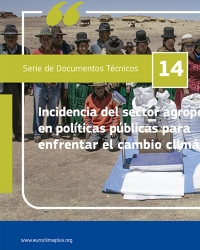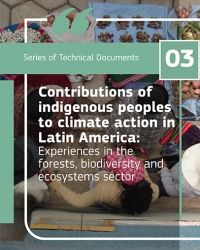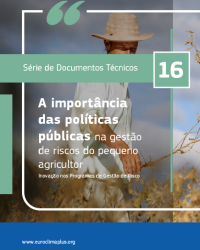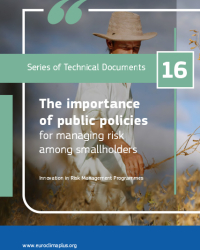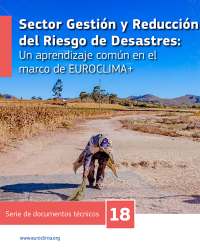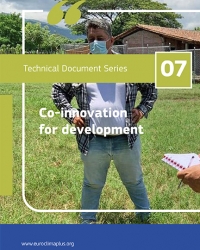Búsqueda por categoría
Más descargados
| Guía Cambio Climático y agricultura familiar con lentes de género 10827 Descargas | 2.49 MB | |
| Informe anual 2021-2022 6637 Descargas | 4.62 MB | |
| Transversalizando la perspectiva de género en proyectos de acción climática: caja de herramientas 3533 Descargas | 6.6 MB |
Fair and effective climate policies: engaging indigenous peoples
1661 Descargas
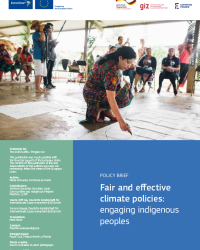 The participation of indigenous peoples in climate action is widely recognised as a crucial element in formulating inclusive and effective policies. This is not only because indigenous peoples receive relatively greater impacts resulting from the effects of climate change and biodiversity loss, but also because they possess traditional knowledge, technologies and practices for climate change mitigation and adaptation.
The participation of indigenous peoples in climate action is widely recognised as a crucial element in formulating inclusive and effective policies. This is not only because indigenous peoples receive relatively greater impacts resulting from the effects of climate change and biodiversity loss, but also because they possess traditional knowledge, technologies and practices for climate change mitigation and adaptation.
This publication analyses experiences promoted by EUROCLIMA+ in the region that seek, on the one hand, to promote their participation as part of public policy formulation processes in the climate field and, on the other hand, to rescue and revalue their traditional knowledge and practices for a more effective approach that reinforces their resilience.
| Categoría: | Serie Documentos técnicos |
| Tamaño del archivo: | 1.95 MB |
| Hits: | 11821 Hits |
| Descargas: | 1661 veces |
| Título: | Fair and effective climate policies: engaging indigenous peoples |
| Autor: | María Fernanda Contreras del Valle |
| Año: | 2022 |
| Autor institucional: | EUROCLIMA+, GIZ, EF |
| Formato: | PDF: 8 p. |

